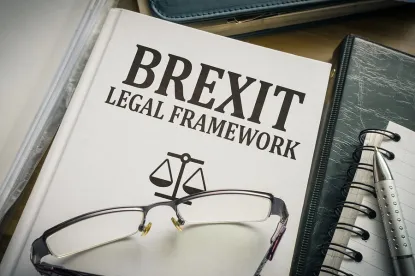In the last week of February – amid some chest-beating ferocity on both sides – the EU and UK published their respective negotiating mandates for the negotiations on the future relationship between the UK and the EU, which duly started at the beginning of March. On the day those talks started, the UK published its negotiating mandate for UK-US free trade talks (the US mandate has been available for over a year). And just to round the day off, US Trade Representative made a speech to the Oxford Union. So where does this flurry of activity leave us?
The UK and the EU agree on what they want: a zero tariff zero quota trade regime in which both parties maintain high standards in environmental, labour, state aids and competition law. So that should all be quite simple, then? Not really, because they disagree radically about the form. The UK wants a series of separate agreements covering trade, aviation, nuclear, judicial cooperation, fish etc, each with their own separate institutional arrangements, and sees some key areas including data adequacy (which would allow personal data to flow freely between UK and EU) and equivalence for financial services as entirely separate items outside the framework of any future trade agreement. The EU wants a single over-arching agreement. The commitment in the Political Declaration agreed alongside the Withdrawal Agreement to a “level playing field” is interpreted very differently. For the EU, it means the UK sticking to standards that achieve the same as the EU’s – the EU has dropped the idea of “dynamic alignment”, in which the UK would effectively follow the evolution of EU rules for good – except in the area of state aids, where the EU wants the UK to remain subject to the full EU regulatory regime including a role for the European Court of Justice (ECJ). For the UK, it means the UK regulating for itself but staying within internationally derived bounds of acceptability.
Perhaps helpfully, these differences have surfaced very clearly in the first round of negotiations, in the first week of March. Perhaps surprisingly, human rights has also emerged as a key issue. The EU wants the UK to commit in the future relationship treaty to maintaining membership of the European Convention on Human Rights (ECHR – which is not part of the EU Treaties). Although some in the UK have hankered after withdrawing from the ECHR, the Government does not appear to intend that. However, there is concern that by committing to the ECHR in the future relationship treaty, particularly in the terms currently proposed by the EU, the UK would allow ECJ interpretations of the ECHR into UK law. We can expect the negotiations to become quite boring – and non-newsworthy – for a few months now There is a check in point at the end of June, by which time it is unlikely that any of the major issues – form of agreement(s), role of ECJ, state aids, human rights, and fish – will have been resolved. But many other more technical items should have been capable of provisional resolution by then. Anyone loking for clarity where all this is heading is however unlikely to get it in June: the headlines will be about the impossibility of agreeing, bad faith (on both sides), collapse of negotiations etc.
Meanwhile, work will continue on the UK-US track. This is more of a classic free trade negotiation, where the treatment of sectors of the respective economies matter. While the political leadership on both sides express support for an ambitious agreement, there are some obvious difficult issues – agriculture, pharma, steel. The politics of these are difficult on both sides, with important economic and social issues at stake. The UK Government has been keen to stress that it will be guided by science, not “mumbo-jumbo”, on agriculture. There may be some greater opening for GM technologies in agriculture. But the totemic “chlorine-washed chicken” will remain a stumbling block, not least for animal welfare reasons. The UK Government has set out a very hard line on drug prices, and has no scope for substantial compromise there. Overall, it looks unlikely given the sensitivity of the issues that a UK-US comprehensive FTA can be agreed in the next few months. There is however talk about a “mini-deal”, as well as the possibility of a regulatory recognition deal in financial services. The UK Government would welcome both – partly to demonstrate at home that progress with the US is possible, and partly to put pressure on the EU.
What are the chances of a deal with the EU by the end of the year? Perhaps not as bad as they are currently portrayed. Though if there is one it will certainly not be the end of the story – expect UK-EU negotiations for at least the next decade. It remains absolutely possible that the UK will default to WTO terms of trade with the EU (including imposition of tariffs) at the end of the year, something the UK Government has taken to referring to euphemistically as “trading on Australian terms” – sounds more palatable than “no deal”. Why the cautious optimism? Several reasons:
-
this is a unique trade negotiation in that it involves divergence not convergence of economic sectors. While there may be benefits in future divergence (which is evident as an objective in the UK position), it is hard to see benefit in divergence in current trade for either side. So in a normal negotiation, the price of no agreement is that good stuff doesn’t happen. In this one, the price of no agreement is that both sides suffer;
-
Prime Minister Johnson is conscious of the northern English formerly Labour seats to which he owes his majority, also the need not to give the Scots a better excuse to vote for independence (he is very mindful of his legacy, and being the Prime Minister who presided over the end of the three hundred year old Union of the UK is not how he would wish to be remembered). Those northern seats, Scotland, and some other largely Tory-voting parts of the country would be among the biggest losers from failure to secure a zero tariff trading relationship;
-
similarly, the PM needs to make the position of Northern Ireland work, and has repeatedly promised no customs controls between Great Britain and Northern Ireland in either direction. This is a promise he should be able to keep in most circumstances for NI-GB trade. But it is on the face of it incompatible with the EU Withdrawal Agreement (a legally binding international treaty) for GB-NI trade. He can probably only achieve what he has promised through some kind of deal with the EU. And he will be conscious of the risks getting Northern Ireland wrong poses to the peace process, to the relationship with the EU, and to the prospects of Congressional ratification of a trade deal with the US.
But the months between now and then will be, as Shakespeare said, “full of sound and fury, signifying nothing.”




 />i
/>i
